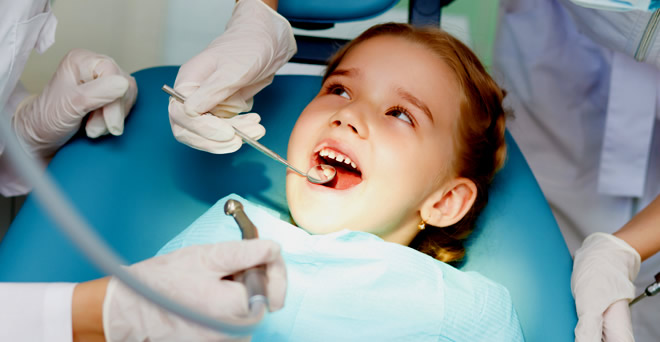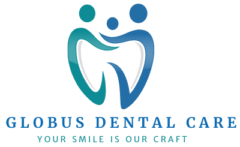Family Dentistry
Family Dentistry
Finding a dental practice that can accommodate the needs of your entire family can be a challenge, but Globus Dental Care in Lynn, MA, is here to make it easy. The team of experienced dental professionals offers a full range of family dentistry services, from routine cleanings to more complex procedures, to ensure that your whole family receives the care they need.
What is Family Dentistry?
Family dentistry is a branch of dentistry that provides comprehensive dental care for patients of all ages. This includes preventive care, such as routine cleanings and exams, as well as treatments, such as fillings and crowns, and cosmetic procedures, such as teeth whitening.
The Benefits of Family Dentistry
There are many benefits to choosing family dentistry for your dental care needs. Some of the key benefits include:.
- Convenient: With family dentistry, you can schedule appointments for your whole family simultaneously, making it easy to keep everyone’s dental health on track.
- Comprehensive care: Family dentistry offers a full range of services, from preventive care to restorative treatments, so you can receive all the care you need in one convenient location.
- Experienced team: The Globus Dental Care in Lynn, MA, is experienced in treating patients of all ages, ensuring that you and your family receive the highest quality care.
- Personalized treatment plans: The team at Globus Dental Care will work with you to develop a customized treatment plan tailored to your specific dental needs.
The Family Dentistry Services Offered at Globus Dental Care in Lynn, MA
At Globus Dental Care in Lynn, MA, the team offers the following family dentistry services:
- Routine cleanings and exams
- Fillings
- Crowns
- Bridges
- Dentures
- Teeth whitening

Childrens Dentistry
At Globus Dental Care in Lynn, MA, the team is dedicated to providing children with the dental care they need to establish a lifetime of good oral health. With a focus on gentle, effective care, the team at Globus Dental Care is committed to helping your child develop a positive relationship with dental care.
Why is Children’s Dentistry Important?
Establishing good oral hygiene habits at a young age is crucial for a child’s overall health. Regular dental check-ups can help detect potential issues early on, allowing for prompt treatment and reducing the risk of more severe problems later on. Children’s dentistry also helps to educate children on the importance of good oral hygiene, encouraging them to develop healthy habits that will serve them well into adulthood.
The Benefits of Children’s Dentistry at Globus Dental Care in Brookline, MA
The team at Globus Dental Care in Lynn, MA, is dedicated to providing the highest quality children’s dentistry services. Some of the key benefits of choosing Globus Dental Care for your child’s dental care include the following:
- Experienced team: The team at Globus Dental Care is experienced in treating children, ensuring that your child receives the best possible care.
- Gentle care: The team at Globus Dental Care is dedicated to providing gentle and effective care, helping to reduce your child’s anxiety about visiting the dentist.
- Comprehensive care: The team at Globus Dental Care offers a full range of children’s dentistry services, including routine cleanings, exams, and more complex procedures, as needed.
- Personalized treatment plans: The team at Globus Dental Care will work with you to develop a customized treatment plan tailored to your child’s specific dental needs.

Teen's Dentistry
Adolescence can be a time of rapid change, both physically and emotionally. At Globus Dental Care in Lynn, MA, the team is dedicated to helping teens navigate these changes by providing comprehensive dental care. With a focus on gentle, effective care, the team at Globus Dental Care is committed to helping your teen maintain good oral health.
Why is Teen’s Dentistry Important?
As teens grow and develop, their dental needs change. Regular dental check-ups during this time can help detect potential issues early on, allowing for prompt treatment and reducing the risk of more severe problems later on. Teen dentistry also helps to educate teens on the importance of good oral hygiene, encouraging them to develop healthy habits that will serve them well into adulthood.

Adult's Dentistry
Maintaining good oral health is essential for overall health and well-being as an adult. At Globus Dental Care in Lynn, MA, the team is dedicated to providing comprehensive dental care to help adults achieve and maintain good oral health. With a focus on gentle, effective care, the team at Globus Dental Care is committed to helping you feel confident and comfortable in your smile.
Why is Adult Dentistry Important?
Adult dentistry is an essential component of good overall health. Regular dental check-ups and cleanings can help detect potential problems early on, allowing for prompt treatment and reducing the risk of more severe problems later on. Adult dentistry also helps to maintain the health and appearance of teeth, gums, and jaw, helping to prevent the onset of more severe conditions and preserving good oral health into old age.
Contact Us
Globus Dental Care
We have an experienced team of dentists in Lynn, MA. Since there are many dental problems that you can have if you are not having the right kind of dental services, you should think of having your teeth cleaned and repaired as early as possible.
